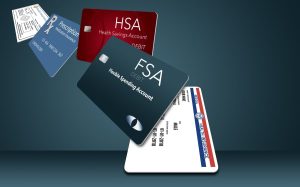Credit card debt is a pervasive issue in the United States, where millions of individuals grapple with the financial strain caused by rising living costs, limited savings, and unexpected expenses. While credit cards offer convenience and flexibility, they can quickly become a source of significant stress if not managed properly.
This article explores the underlying causes of credit card debt, highlights its dangers, and offers actionable insights for avoiding financial distress. Whether you’re just starting your credit journey or seeking to regain control, this guide is a roadmap to navigate the challenges of credit card debt responsibly.
Understanding the roots of credit card debt

The prevalence of credit card debt in the US is deeply intertwined with societal norms and economic realities. For many, credit cards are seen as an essential financial tool, offering the ability to purchase now and pay later. However, this mindset often leads to excessive reliance on credit, which can spiral into unmanageable debt.
A lack of financial education plays a critical role in this dynamic. In the US, personal finance is rarely taught in schools, leaving many individuals ill-equipped to handle credit responsibly. This knowledge gap means that terms like “APR,” “compound interest,” and “minimum payments” are not well understood, leading to costly mistakes.
Another significant factor is the accessibility of credit. With credit card companies aggressively marketing to consumers through pre-approved offers and enticing rewards programs, many people end up with more credit than they can manage. Coupled with the high cost of living and stagnant wages, it’s easy to see how individuals fall into the cycle of credit dependency.
Economic pressures also contribute to rising credit card debt. Emergencies such as medical bills, car repairs, or sudden job loss often leave individuals with no choice but to rely on credit cards. Without an adequate emergency fund, even the most financially disciplined individuals can find themselves facing mounting debt.
The dangers of minimum payments
One of the most deceptive aspects of credit card debt is the option to make minimum payments. While these payments seem manageable, they often trap borrowers in a cycle of long-term debt. Many people are unaware that paying only the minimum significantly extends the repayment period and dramatically increases the total cost of borrowing.
Minimum payments are calculated as a small percentage of the outstanding balance, typically including accrued interest and a small fraction of the principal. For instance, a $5,000 balance with a 20% APR could take over 15 years to pay off if only minimum payments are made. During this time, the borrower may pay double or triple the original balance in interest alone.
The psychological impact of minimum payments is equally concerning. Seeing a low amount due each month creates a false sense of security, leading borrowers to believe their finances are under control. This perception often delays the urgency to address the root cause of the debt, allowing balances to grow unchecked.
Strategies for responsible credit card use
Responsible credit card use begins with understanding the terms of your credit agreement. Every card comes with specific conditions, including interest rates, fees, and penalties. Familiarizing yourself with these details can help you make informed decisions and avoid unnecessary costs.
Building an emergency fund is another critical strategy. This safety net protects against unexpected expenses, reducing the need to rely on credit cards in times of crisis. Experts recommend saving three to six months’ worth of living expenses, but even small, consistent contributions can make a significant difference over time.
Additionally, consider limiting the number of credit cards you hold. While having multiple cards can improve your credit utilization ratio, it also increases the temptation to overspend. By focusing on one or two cards with favorable terms, you can simplify your finances and reduce the risk of falling into debt.
The impact of high-interest rates
Credit cards often come with some of the highest interest rates in the lending industry, ranging from 15% to over 30% annually. When balances are not paid in full, these rates can quickly inflate the total amount owed, making repayment increasingly challenging.
Interest on credit card balances compounds daily, meaning that each day the balance remains unpaid, additional interest is calculated and added. This compounding effect accelerates the growth of debt, particularly for individuals who continue using the card for new purchases while carrying a balance.
To combat high-interest rates, consider options such as balance transfer credit cards or debt consolidation loans. These tools often come with lower introductory rates, allowing borrowers to focus on paying down the principal. However, it’s essential to read the fine print and ensure that these options align with your long-term financial goals.
Seeking help and creating a plan
For those already burdened by credit card debt, seeking help is a sign of strength, not weakness. Professional financial counseling services can provide guidance and support, helping individuals navigate their options and create actionable plans to reduce debt.
Nonprofit credit counseling organizations offer tailored advice and resources, often at little or no cost. These services can help you understand your financial situation, negotiate lower interest rates with creditors, and develop a manageable repayment plan.
Creating a personal debt repayment plan involves assessing your financial situation in detail. Start by listing all sources of income and expenses, then identify areas where you can cut back. Allocate as much as possible toward your debt, prioritizing accounts with the highest interest rates. Consistency is key; even small, regular payments can have a significant impact over time.
In extreme cases, debt relief options such as debt settlement or bankruptcy may be necessary. While these solutions come with long-term consequences, they can provide a fresh start for those facing insurmountable debt. Consulting with a financial advisor or attorney can help you determine the best course of action.
Conclusion: the path to financial freedom
Credit card debt is a formidable challenge, but it is not insurmountable. By understanding its causes, recognizing the dangers of minimum payments, and adopting responsible financial habits, individuals can take control of their finances and work toward a debt-free future.
The journey to financial freedom requires discipline, patience, and a commitment to change. Along the way, celebrating small victories can provide motivation and reinforce positive habits. With the right tools and mindset, it’s possible to break free from the cycle of credit card debt and achieve lasting financial stability.





